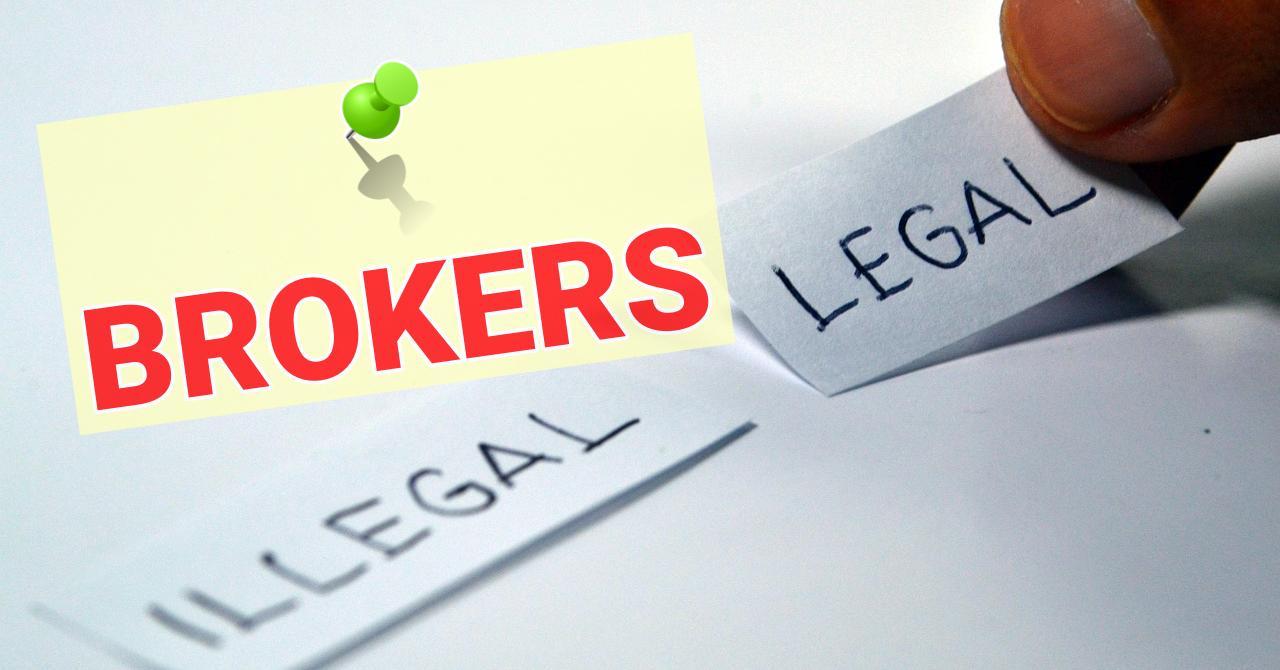In a previous post, we talked about labor brokers and their roles in Taiwan’s employment system. Brokers serve as middlemen between job seekers, recruitment agencies, and companies. They help facilitate employment for foreign workers, including OFWs.
However, not all “brokers” that you may encounter are legitimate. There are unscrupulous groups and individuals who are out to deceive job seekers and employers, too. In this article, we will discuss how you can distinguish between legal and illegal labor brokers.

Differences Between Legal and Illegal Labor Brokers
To avoid becoming a victim of illegal brokers, you must know the differences between them and legal ones. In a post on the 1955 Hotline Facebook page, the Ministry of Labor (MOL) presents the following differences based on license/accreditation, fees, and services/practices:
License/Accreditation
First of all, legal labor brokers are licensed or accredited by the MOL. They undergo regular inspection to make sure that they comply with regulations.
On the other hand, most illegal labor brokers are unlicensed, while some may have licenses but these are expired or invalid. They operate outside of government supervision, and are therefore not checked or inspected for compliance with regulations.
Fees
Legal labor brokers charge limited and reasonable service fees, which are set by the MOL. This fee decreases every year, making it more affordable for foreign workers. They are also transparent, making sure that workers know how their payments are used.
In contrast, illegal labor brokers charge excessive fees that are usually higher than the amounts set by the MOL. Oftentimes, they require a large upfront payment, while also charging “placement” or “referral” fees, which are illegal. Furthermore, illegal labor brokers are not transparent when it comes to informing workers about where their payments go and how these are used.
Services/Practices
Legal labor brokers have a fixed or permanent place of business where they conduct their operations. They provide a range of services to foreign workers, including airport pick-up, administrative assistance, and so on. They also have a customer service hotline that workers can contact for help and support.
Illegal labor brokers, on the other hand, tend to be discreet with their contact details and physical location; they usually don’t announce or publish their numbers and addresses. They also engage in suspicious and illegal practices, such as:
- Luring job seekers with “easy work, high salary” jobs;
- Not providing a clear or complete contract;
- Making illegal deductions from workers’ payments;
- Recruiting undocumented workers for cheap labor; and
- Forcing workers to accept unfavorable conditions and threatening them with deportation.
Important Reminders
If you suspect that your labor broker is illegal or not following the law, report them to the MOL through the 1955 Hotline. You can also go to the police and other legal authorities.
Moreover, practice vigilance with all of your job-related and financial transactions. Always ask for an itemized payslip when you receive your salary. Keep your payslips so that you can track your salary and check if your broker is making any illegal deductions.

By knowing the differences between legal and illegal labor brokers, you can avoid becoming a victim of exploitation and abuse. It pays to be informed, so be aware and updated at all times!
Aside from charging excessive fees, illegal labor brokers commit other violations with regard to workers’ employment contracts. Check out this article to learn more about the most common contract violations committed against foreign workers.
